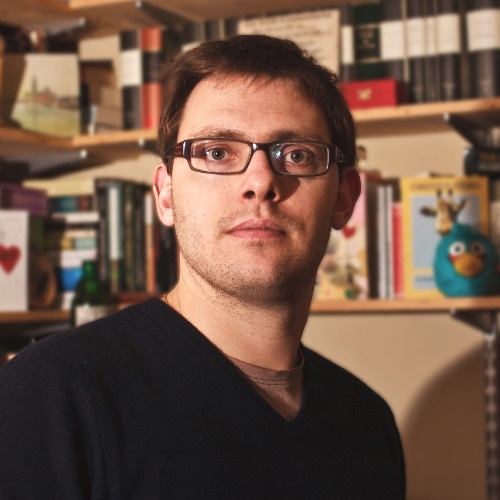We recently caught up with Dr Tom Chatfield, expert speaker on technology trends and author of 2024’s Wise Animals: How Technology Has Made Us What We Are, to discuss evolving trends in AI, what books are currently shaping his thinking, and the role of mentors in his life.
What aspect of AI do you think is receiving TOO LITTLE attention?
I wish people would spend more time talking about what is actually going on within specific systems, and what in particular they can do, rather than dealing in generalisations and prognostications that treat AI as magical or human-like. It’s a vast, fascinating, fast-evolving field, and it’s so important not to be bewitched by language or to rely on faulty analogies – such as to our own minds, unrelated technologies, or myths and movies – when debating its risks and potentials.
What aspect of AI is receiving TOO MUCH attention?
Stories of triumph and disaster attract attention for similar reasons: they’re striking, simple and appear to offer certainty. I worry that both those hyping up AI and those convinced it’s a bubble can get stuck in a loop that glosses over real-world risks, complexities and opportunities. I think AI is a very big deal; but the interesting story, for me, is how different industries and institutions can specifically make use of statistical insights, automation and pattern-recognition within areas where they have high-quality data and understandings. And when such data and understanding are lacking, they need to watch out.
What’s the last book you read?
I’m just finishing The Atomic Human by Neil Lawrence, the inaugural DeepMind Professor of Machine Learning at Cambridge. It’s a brilliant book, partly because it resists hype and has a great sense of historical context, complete with vividly-told stories; and partly because it insists on a tangible, engineering-led understanding of machine learning systems as human-made artefacts that exist in the real world. AI, in Lawrence’s account, is a form of automated decision-making that can only be understood via its instantiation in particular human contexts. Similarly, human cognition can only be understood in terms of our biology and evolutionary history – and Lawrence is clear and thoughtful in teasing out what this implies in an age of ever-more-powerful machines.
Have you ever had a mentor?
Looking back, I would say I’ve had several, although none I would necessarily have called a mentor at the time. I was supported and encouraged immensely by my tutor at St John’s College, Oxford, Professor John Kelly, from my time as an undergraduate to my doctorate and beyond. He was a brilliant polymath, and in addition to his charisma and personal warmth helped me see how important it is to build relationships with people across a diversity of fields. Among many others, I also owe a lifelong debt to Ziyad Marar, author and President of Global Publishing at SAGE, who has endlessly supported my writing and thinking over the last decade, and helped me find a global network of fascinating people whose work and ideas fuel my own.
If you could go back in time and give your younger self one piece of advice, what would it be?
Don’t be afraid to express gratitude and admiration: do so openly, honestly and often. You never know when it will be too late to thank someone.
For more information on Tom Chatfield’s speaking topics, availability and fees, contact leo@vbqspeakers.com.
